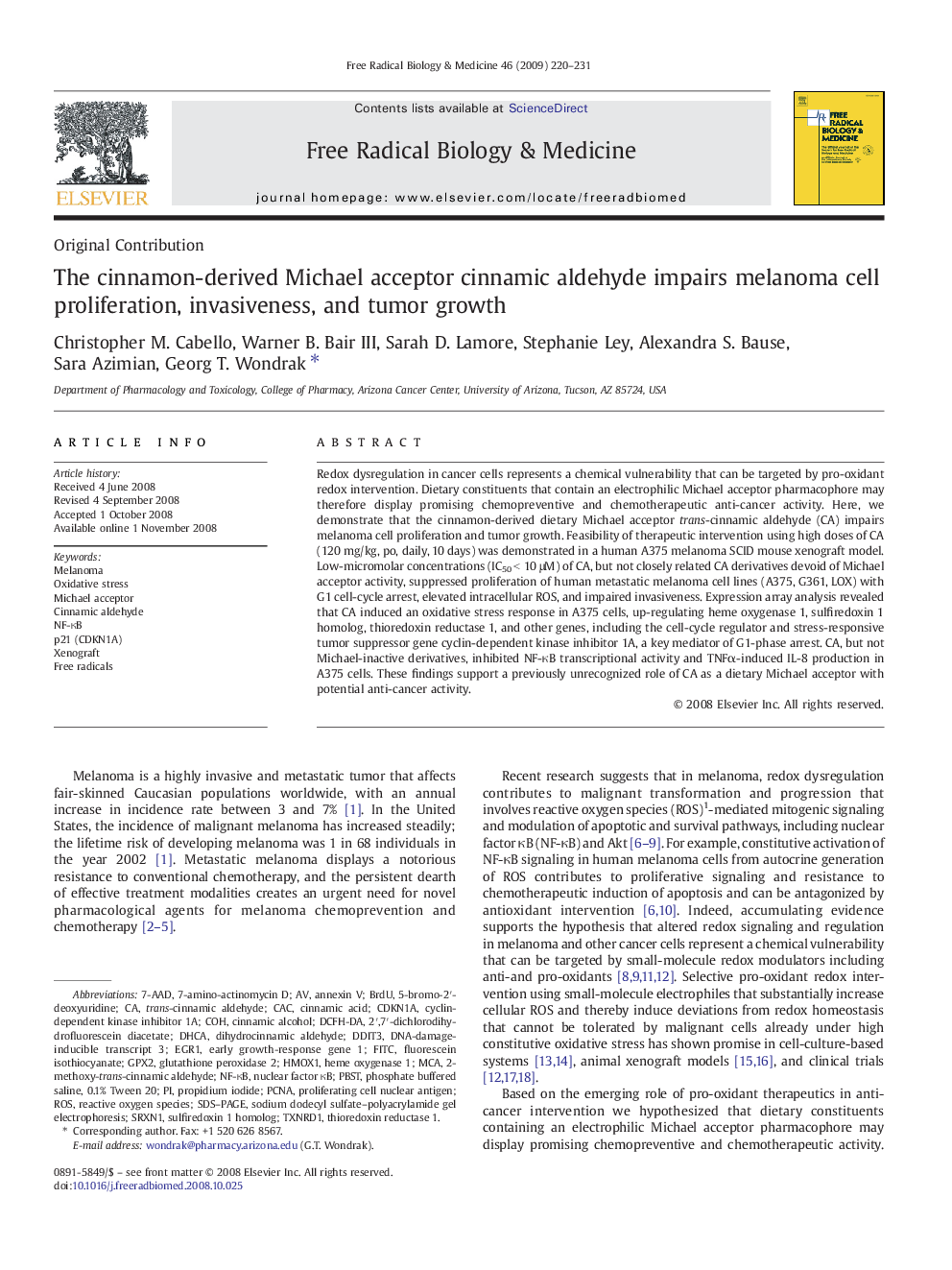| Article ID | Journal | Published Year | Pages | File Type |
|---|---|---|---|---|
| 1910467 | Free Radical Biology and Medicine | 2009 | 12 Pages |
Redox dysregulation in cancer cells represents a chemical vulnerability that can be targeted by pro-oxidant redox intervention. Dietary constituents that contain an electrophilic Michael acceptor pharmacophore may therefore display promising chemopreventive and chemotherapeutic anti-cancer activity. Here, we demonstrate that the cinnamon-derived dietary Michael acceptor trans-cinnamic aldehyde (CA) impairs melanoma cell proliferation and tumor growth. Feasibility of therapeutic intervention using high doses of CA (120 mg/kg, po, daily, 10 days) was demonstrated in a human A375 melanoma SCID mouse xenograft model. Low-micromolar concentrations (IC50 < 10 μM) of CA, but not closely related CA derivatives devoid of Michael acceptor activity, suppressed proliferation of human metastatic melanoma cell lines (A375, G361, LOX) with G1 cell-cycle arrest, elevated intracellular ROS, and impaired invasiveness. Expression array analysis revealed that CA induced an oxidative stress response in A375 cells, up-regulating heme oxygenase 1, sulfiredoxin 1 homolog, thioredoxin reductase 1, and other genes, including the cell-cycle regulator and stress-responsive tumor suppressor gene cyclin-dependent kinase inhibitor 1A, a key mediator of G1-phase arrest. CA, but not Michael-inactive derivatives, inhibited NF-κB transcriptional activity and TNFα-induced IL-8 production in A375 cells. These findings support a previously unrecognized role of CA as a dietary Michael acceptor with potential anti-cancer activity.
